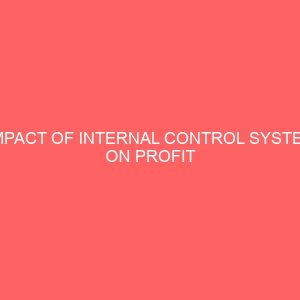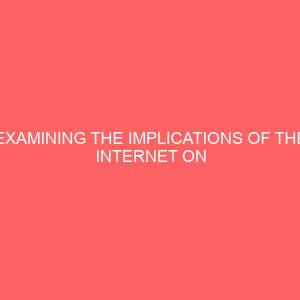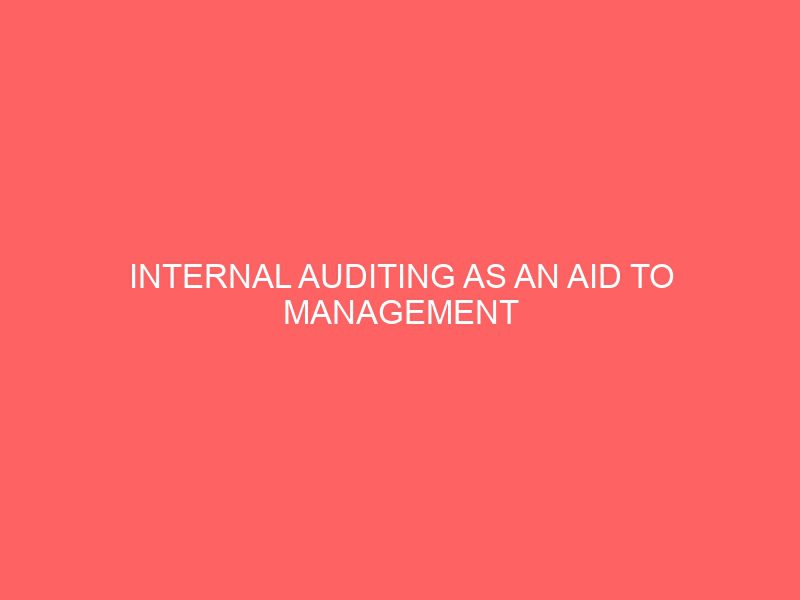Description
This project work is on Internal auditing as an aid to management
ABSTRACT
This research work deals with internal audit as an aid to management. It aims at finding out the role of internal audit in management decision making in organizations. It is a survey research. Data were collected from primary and secondary sources which included using questionnaires, personal observations, text book, journal and internet. Sample of 92 were collected by random sample method. Three hypotheses were formulated and tested using Z-test statistics, while questionnaires were analyzed using simple percentages. We discovered among other things that internal audit assists management in managerial decisions. We recommended among other things that the auditors be trained in forensic accounting to enable them to be more effective in their duties.








Reviews
There are no reviews yet.